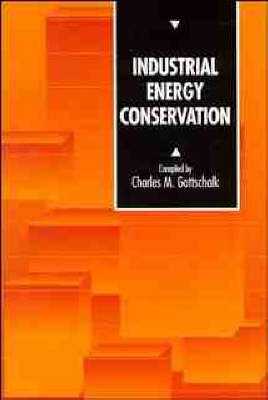
Industrial Energy Conservation
Seiten
1996
John Wiley & Sons Ltd (Verlag)
978-0-471-96008-9 (ISBN)
John Wiley & Sons Ltd (Verlag)
978-0-471-96008-9 (ISBN)
- Titel ist leider vergriffen;
keine Neuauflage - Artikel merken
This text introduces a new kind of management cost accounting designed to increase productivity through the conservation of energy. The key objective of the text is to pinpoint the opportunities for improved performance within a specific industrial context.
The need to conserve energy, particularly in industry, is increasingly felt as energy costs take up a substantial share in the overall expenses of an operation. Energy conservation is a crucial way to increase productivity and profits, and often requires a minimum outlay to existing facilities and procedures to achieve significant benefits. Forming part of the UNESCO Energy Engineering Learning Package, this text introduces a new kind of management cost accounting designed to increase productivity through the conservation of energy. The key objective of the text is to pinpoint the opportunities for improved performance within a specific industrial context. There are three main sections to the text: energy conservation management; economics and financial evaluation of energy projects; and planning and implementing energy conservation projects. Towards the end of the text, the reader is provided with a comprehensive question-and-answer section.
The need to conserve energy, particularly in industry, is increasingly felt as energy costs take up a substantial share in the overall expenses of an operation. Energy conservation is a crucial way to increase productivity and profits, and often requires a minimum outlay to existing facilities and procedures to achieve significant benefits. Forming part of the UNESCO Energy Engineering Learning Package, this text introduces a new kind of management cost accounting designed to increase productivity through the conservation of energy. The key objective of the text is to pinpoint the opportunities for improved performance within a specific industrial context. There are three main sections to the text: energy conservation management; economics and financial evaluation of energy projects; and planning and implementing energy conservation projects. Towards the end of the text, the reader is provided with a comprehensive question-and-answer section.
Energy Conservation Management: Obtaining Management Support; Establishing the Energy Data Base; Conducting Energy Audit; Identifying, Evaluating and Implementing Feasible Energy Conservation Opportunities; Monitoring, Evaluating and Following Up Effects of Energy Saving Measures/Projects; Economics and Financial Evaluation of Energy Projects: Cash Flow Model; Time Value of Money; Equipment Life; Equipment Cost; Project Benefit and Costs; Systematic Economic Analysis Technique; Other Considerations in Investment Analysis; Sample Report; Planning and Implementing Energy Conservation Projects: Planning, Appraisal, Design; Selection, Approval, Activation; Implementation, Control and Turnover; Review and Evaluations.
| Erscheint lt. Verlag | 26.4.1996 |
|---|---|
| Reihe/Serie | UNESCO Energy Engineering |
| Zusatzinfo | Illustrations, forms |
| Verlagsort | Chichester |
| Sprache | englisch |
| Maße | 168 x 244 mm |
| Gewicht | 370 g |
| Themenwelt | Technik ► Elektrotechnik / Energietechnik |
| Wirtschaft ► Betriebswirtschaft / Management ► Controlling / Kostenrechnung | |
| Wirtschaft ► Betriebswirtschaft / Management ► Rechnungswesen / Bilanzen | |
| ISBN-10 | 0-471-96008-X / 047196008X |
| ISBN-13 | 978-0-471-96008-9 / 9780471960089 |
| Zustand | Neuware |
| Haben Sie eine Frage zum Produkt? |
Mehr entdecken
aus dem Bereich
aus dem Bereich


